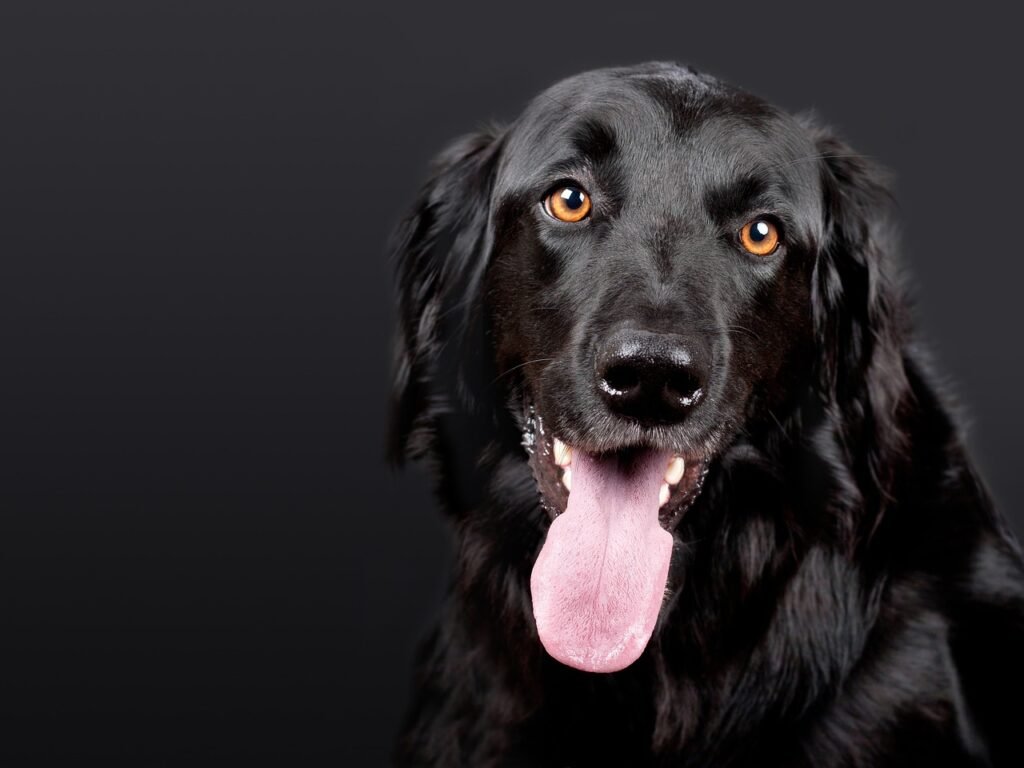Older dogs often experience panting at night, which can be a sign of an underlying health issue or simply a result of aging. Night panting can be distressing for both the dog and the owner, as it can disrupt sleep and cause anxiety. Fortunately, there are several remedies that can help alleviate this problem and ensure your furry friend gets a good night’s rest.
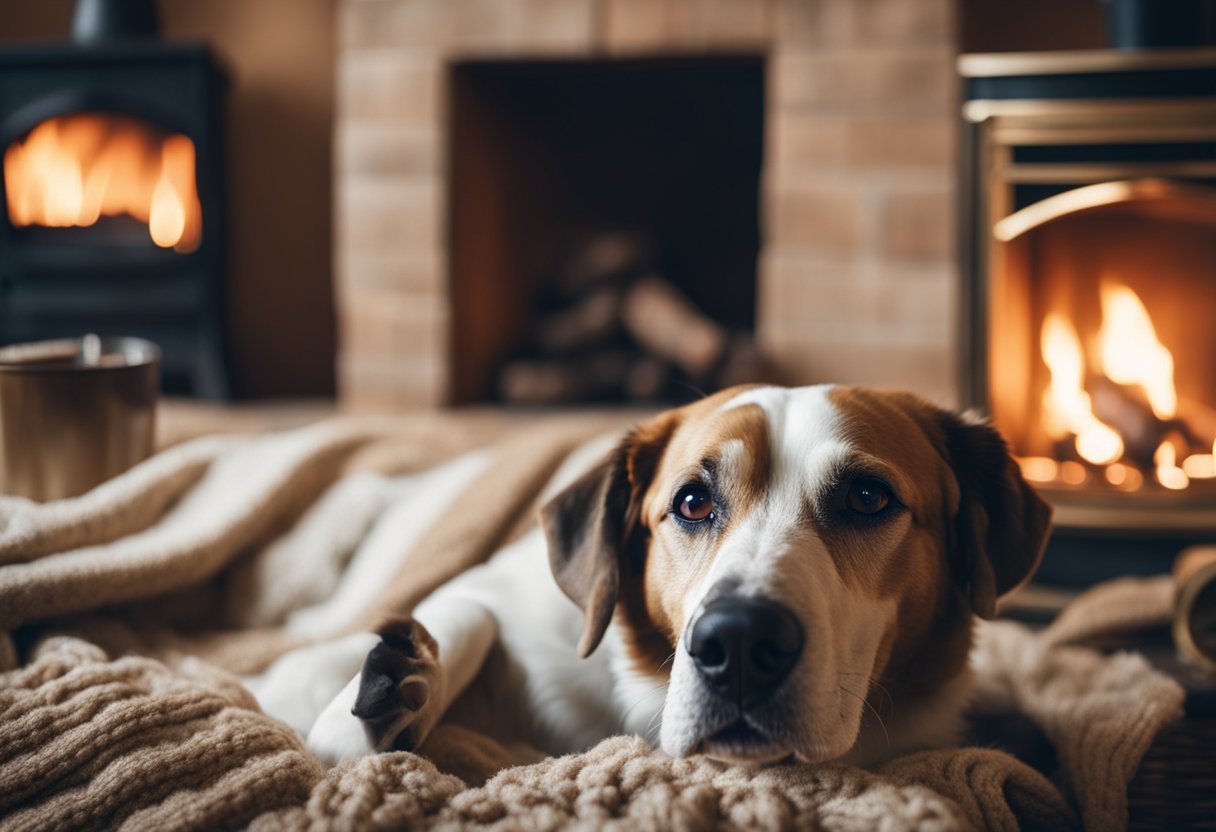
One common remedy for night panting in older dogs is to ensure they are not too hot. Dogs pant to cool down, so it’s important to make sure their sleeping area is in a cooler location. If they are sleeping in the hotter part of your house, move them to a cooler place and provide them with cool water to drink. It’s also a good idea to avoid using thick bedding or blankets, which can trap heat and make your dog feel uncomfortable.
Another remedy for night panting in old dogs is to provide them with a calming environment. This can include playing soft music, using aromatherapy, or providing a comfortable bed. Some dogs may benefit from being close to their owner, while others may prefer a quiet, dark room. It’s important to experiment with different environments to find what works best for your dog. By addressing the underlying cause of night panting in older dogs, you can help ensure your furry friend gets the restful sleep they need to stay healthy and happy.
Understanding Night Panting in Senior Dogs

Senior dogs may experience night panting, which can be concerning for pet owners. Understanding the causes of this behavior can help address the issue effectively.
Causes of Night Panting
Night panting in senior dogs can be attributed to various factors, including physical discomfort, anxiety, or medical conditions. Older dogs may have difficulty regulating their body temperature, leading to increased panting, especially at night. Additionally, underlying health issues such as heart disease, Cushing’s syndrome, or respiratory problems can contribute to heavy breathing during the night.
When to Be Concerned
While occasional panting is normal, persistent and excessive night panting in senior dogs may indicate an underlying problem. Pet owners should monitor the frequency and intensity of panting, especially if it is accompanied by signs of distress or anxiety. If the panting is disrupting the dog’s sleep or appears to be a symptom of an underlying health issue, it is advisable to seek veterinary advice to determine the appropriate course of action.
Immediate Remedies for Night Panting
Older dogs may experience panting at night due to various reasons. However, there are some immediate remedies that can help reduce the frequency and intensity of night panting.
Creating a Calming Environment
Creating a calming environment for the older dog can help reduce night panting. This can be achieved by playing soothing music or white noise, which can help the dog relax and sleep better. Additionally, using a comfortable bed and blankets can help the dog feel more relaxed and comfortable.
Adjusting Room Temperature
Adjusting the room temperature can also help reduce night panting in older dogs. Dogs pant to regulate their body temperature, and if the room is too warm, the dog may pant excessively. Therefore, keeping the room cool and well-ventilated can help the dog regulate their body temperature and reduce night panting.
It is important to note that night panting in older dogs can be a symptom of an underlying medical condition. Therefore, if the night panting persists or is accompanied by other symptoms such as coughing, lethargy, or loss of appetite, it is important to consult a veterinarian for a proper diagnosis and treatment.
Long-Term Solutions to Reduce Panting
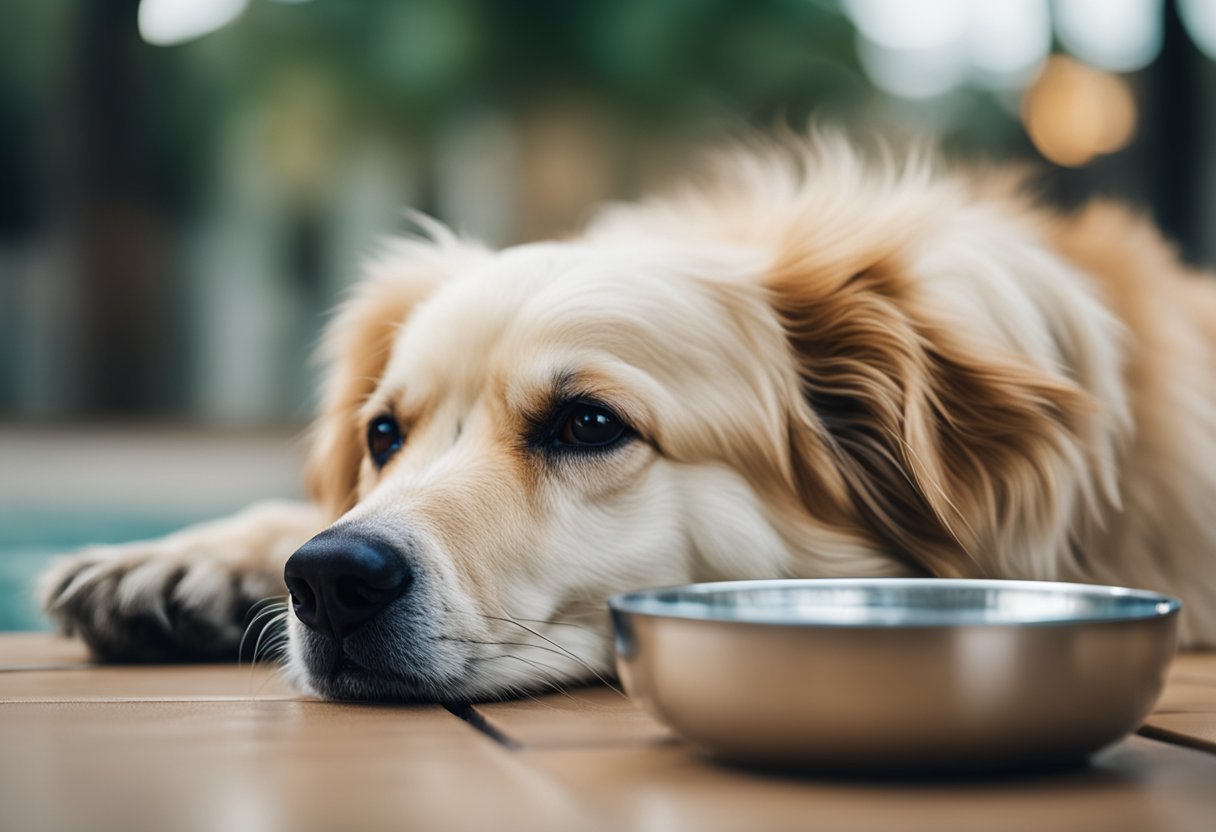
Weight Management
Maintaining a healthy weight is crucial in managing a dog’s overall health and reducing excessive panting. Overweight or obese dogs are more prone to respiratory issues, which can lead to increased panting. A balanced diet and regular exercise can aid in weight management. Consult a veterinarian for a tailored diet plan and exercise regimen to help your old dog maintain a healthy weight.
Regular Veterinary Check-Ups
Regular veterinary check-ups are essential for monitoring an old dog’s health and addressing any underlying issues that may contribute to excessive panting. Through routine examinations, a veterinarian can detect and address any potential health concerns early on, ensuring the well-being of the dog. These check-ups also provide an opportunity to discuss any changes in panting patterns and seek professional advice on managing the issue effectively.
Cooling Products for Comfort
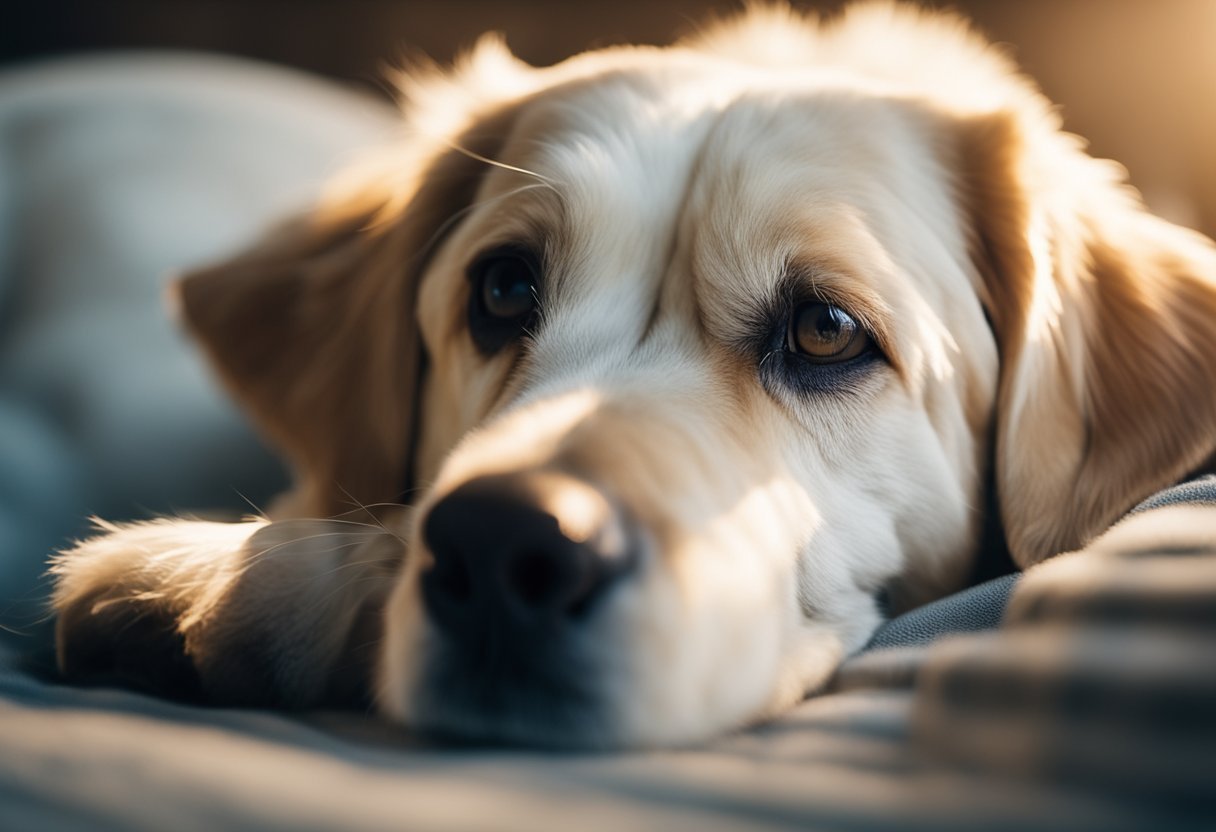
Older dogs are more prone to heat exhaustion and panting at night. It is important to provide them with a comfortable and cool sleeping area to help them regulate their body temperature. There are several cooling products available in the market that can help keep your furry friend comfortable.
Cooling Beds
A cooling bed is a great option for dogs who tend to overheat at night. These beds are designed to keep your dog cool and comfortable by using gel-infused memory foam or water to dissipate heat. Some cooling beds also come with a raised mesh design that allows for better airflow.
When choosing a cooling bed, it is important to consider the size and weight of your dog. Make sure to choose a bed that is large enough to accommodate your dog comfortably. Also, look for a bed that is easy to clean and maintain.
Cooling Mats and Pads
Cooling mats and pads are another great option for keeping your dog cool at night. These products are made with a cooling gel that provides a cool surface for your dog to lie on. Some mats and pads are also designed to be used in a crate or carrier.
When choosing a cooling mat or pad, make sure to choose one that is the right size for your dog. Also, look for a mat or pad that is easy to clean and maintain.
Overall, cooling products can help keep your dog comfortable and alleviate night panting. Make sure to choose a product that is the right size for your dog and easy to clean and maintain.
Behavioral and Environmental Adjustments

Older dogs may experience nighttime panting due to a variety of reasons, including discomfort, anxiety, or pain. Fortunately, there are several behavioral and environmental adjustments that pet owners can make to help alleviate this issue.
Exercise and Activity
One way to reduce nighttime panting is to increase your dog’s exercise and activity levels during the day. This can help your dog expend energy and sleep better at night. However, it’s important to ensure that your dog is capable of handling the level of exercise you provide. Overexertion can lead to additional health problems, so it’s important to consult with your veterinarian before implementing a new exercise plan.
Evening Routines
Creating a relaxing evening routine can also help reduce nighttime panting. This can include engaging in calming activities such as massage or aromatherapy, providing a comfortable sleeping environment, and limiting food and water intake before bedtime. Additionally, it may be helpful to establish a consistent bedtime routine to help your dog feel more secure and relaxed.
Overall, making these behavioral and environmental adjustments can help reduce nighttime panting in older dogs. However, if your dog’s panting persists or worsens, it’s important to consult with your veterinarian to rule out any underlying health issues.
Addressing Senior Dog Anxiety
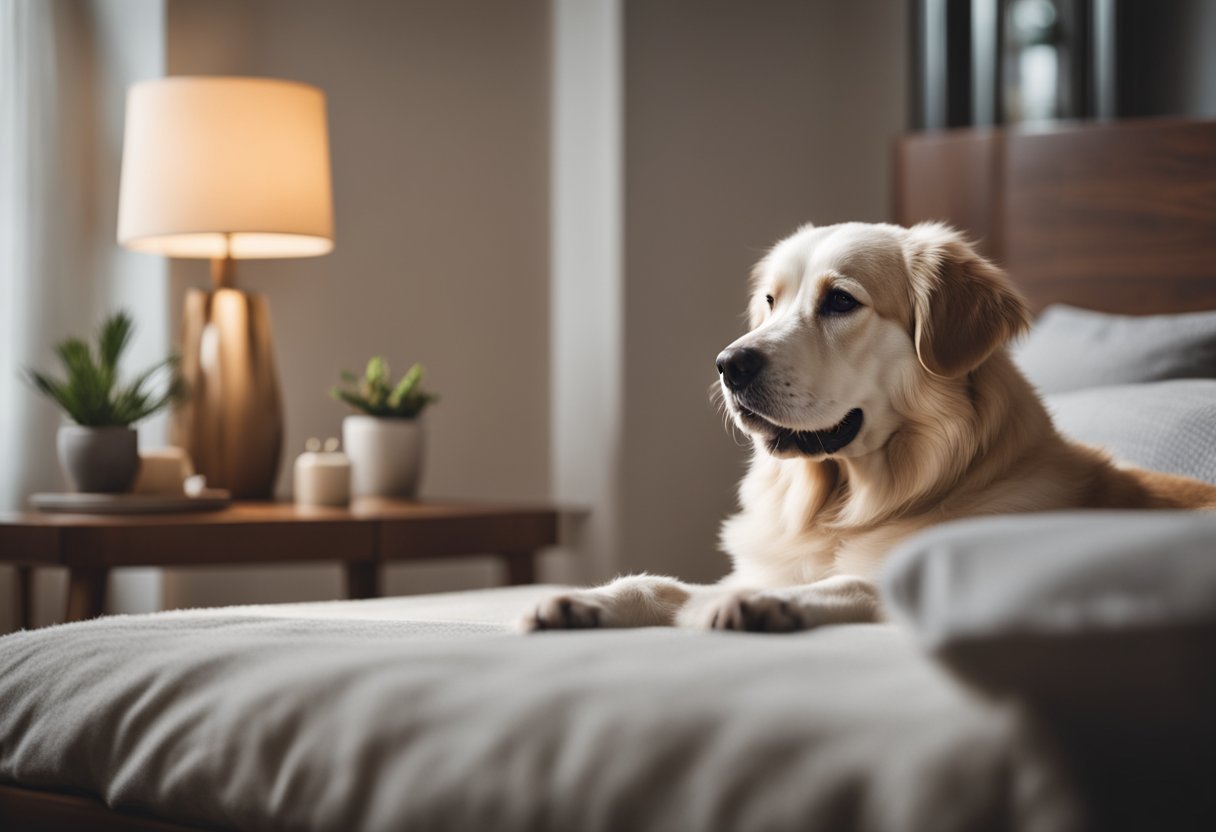
Older dogs may experience anxiety, particularly at night, which can be distressing for both the dog and the owner. There are several strategies that can help alleviate this anxiety and promote a sense of calm and comfort for the dog.
Calming Supplements
Certain natural supplements, such as melatonin or chamomile, can be beneficial in reducing anxiety in older dogs. These supplements are known for their calming effects and can help the dog relax during nighttime hours. It’s important to consult with a veterinarian before introducing any new supplements to a dog’s routine to ensure they are safe and appropriate for the specific dog’s health needs.
Anxiety Wraps and Vests
Anxiety wraps and vests, such as Thundershirts, apply gentle, constant pressure to a dog’s torso, which can have a calming effect. This pressure has been found to reduce anxiety in dogs, similar to the way swaddling can comfort a baby. These wraps and vests are non-invasive and can provide a sense of security and comfort for older dogs experiencing nighttime anxiety.
Dietary Considerations
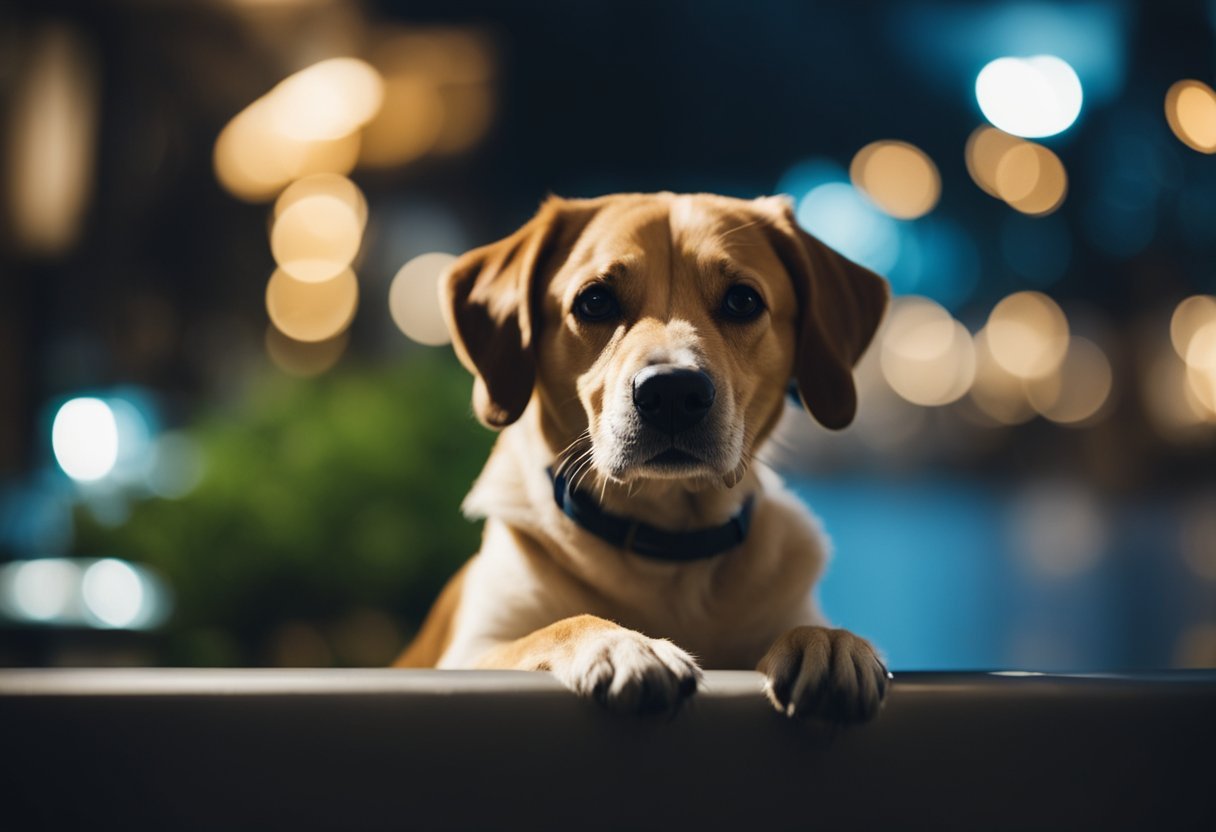
Older dogs may have different dietary needs than younger ones. When it comes to night panting, there are a few dietary considerations that can help alleviate the symptoms.
Hydration and Nutrition
First and foremost, it is important to ensure that the dog is properly hydrated. Dehydration can cause panting, so make sure the dog has access to clean water at all times. Additionally, feeding the dog a well-balanced diet that is appropriate for their age and health condition can help prevent panting episodes. It is recommended to consult with a veterinarian to determine the best diet for the dog.
Supplements for Respiratory Health
Certain supplements can also help alleviate respiratory issues that may be causing the panting. Omega-3 fatty acids, for example, can help reduce inflammation in the lungs and airways. Vitamin C can also help support respiratory health. However, it is important to consult with a veterinarian before giving any supplements to the dog to ensure proper dosage and safety.
In conclusion, ensuring proper hydration and nutrition, as well as considering supplements for respiratory health, can help alleviate night panting in older dogs. It is important to consult with a veterinarian to determine the best course of action for the dog’s specific needs.
Professional Care and Treatment
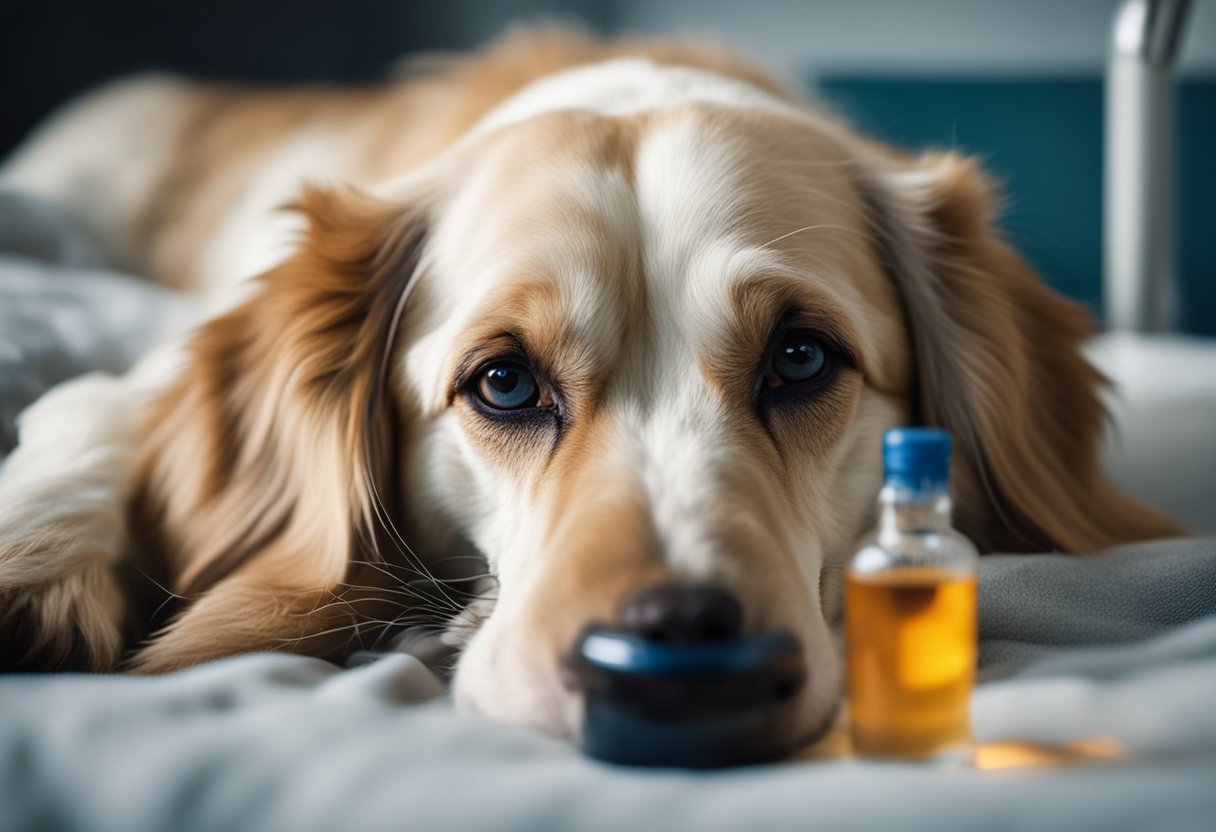
Older dogs who experience nighttime panting may require professional care and treatment. In some cases, medication or therapy may be necessary to address underlying medical conditions or alleviate anxiety and stress.
Medications and Therapies
There are several medications and therapies that may be prescribed by a veterinarian to help manage nighttime panting in older dogs. These may include:
- Anti-anxiety medications: Prescription medications such as alprazolam or diazepam may be prescribed to help alleviate anxiety and stress in dogs, which can contribute to nighttime panting.
- Hormone therapy: Hormone therapy, such as melatonin, may be prescribed to help regulate a dog’s sleep cycle and promote restful sleep.
- Pain management: If underlying pain is contributing to nighttime panting, pain management medications such as nonsteroidal anti-inflammatory drugs (NSAIDs) may be prescribed.
Specialist Consultations
In some cases, a specialist consultation may be necessary to diagnose and treat underlying medical conditions that may be contributing to nighttime panting. A veterinary behaviorist may be consulted to address anxiety and stress-related issues, while a cardiologist may be consulted to diagnose and treat heart-related conditions.
It is important to note that all medications and therapies should only be prescribed by a licensed veterinarian after a thorough examination and diagnosis. Pet owners should never attempt to self-diagnose or self-medicate their pets, as this can lead to serious health complications.

